Democrats gather to confront lingering 2016 frustration
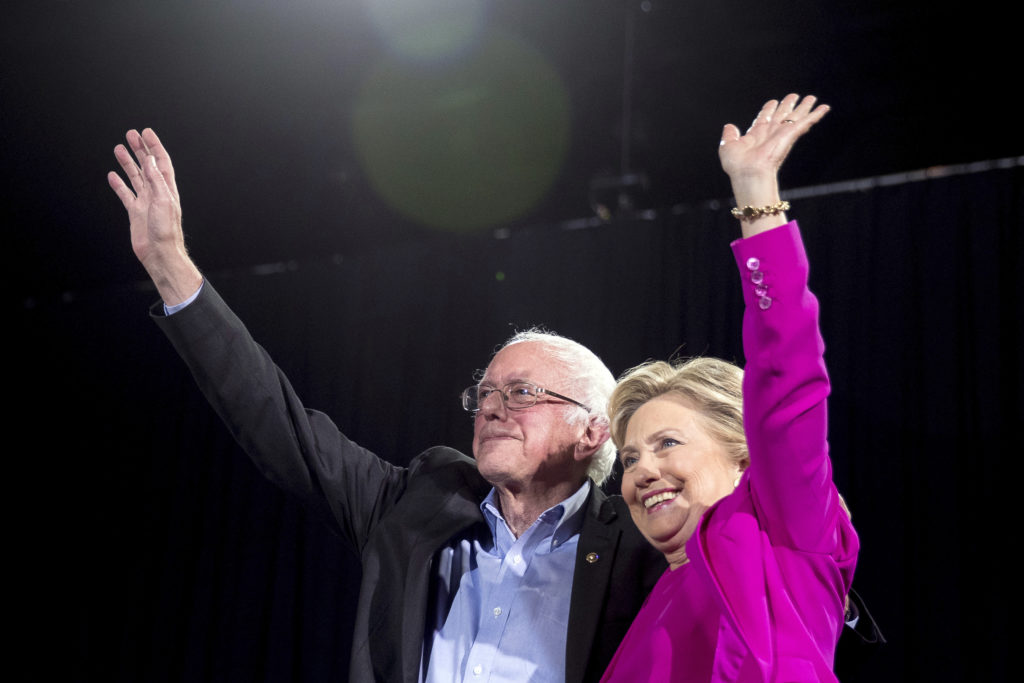
Democrats are bullish about their prospects in the November midterms, and are peeking around the corner at a 2020 rematch with President Donald Trump. But first, they’re confronting the lingering frustration from 2016. That bitter nominating fight between Hillary Clinton and Bernie Sanders is front and center in Chicago this week as members of the Democratic National Committee gather for their summer meeting. They’ll decide the fate of so-called superdelegates — DNC members, elected officials and other party dignitaries. Two years after such delegates overwhelmingly backed Clinton, Sanders supporters argue that this group is the epitome of establishment favoritism. As he seeks to build a unified front among Democrats heading into the next presidential primary, DNC Chairman Tom Perez is pushing a proposal to limit the influence of superdelegates at the 2020 convention. The primary could feature as many as two dozen Democrats vying to take on Trump. “These moves are about rebuilding trust,” Perez told reporters recently, defending a plan that would strip party insiders of their votes on the first ballot of a contested nominating convention, leaving the outcome to pledged delegates whose votes are dictated by the results of state primaries and caucuses. Perez predicted he’ll secure the DNC majority required to change party rules when the full committee considers the matter Saturday. Yet in trying to mollify Sanders’ supporters and grassroots activists, Perez has inflamed tensions among the DNC membership and on Capitol Hill, where rank-and-file party leaders and Congressional Black Caucus Chairman Cedric Richmond have blasted the proposal. “Three months before the midterms, and this is what Bernie Sanders and Tom Perez have us discussing? Such fools,” said Bob Mulholland, a DNC member from California who backed Clinton in 2016 and has protested since then that Sanders’ backers have wielded undue influence over the party because the Vermont senator is elected as an independent. Don Fowler, who served as DNC chairman during President Bill Clinton‘s administration, said the party is punishing loyal party leaders “on some vague presumption that it will be fairer.” He promised an organized opposition at Saturday’s meeting. The situation comes as Democrats are trying to weather domestic abuse allegations facing their deputy chairman, Keith Ellison. The Minnesota congressman, who last week secured his party’s nomination to compete for state attorney general, denies the accusations from an ex-girlfriend and is not expected to attend the party gathering as he campaigns back home. Perez has said the DNC is investigating the matter. Beyond changing the rules for superdelegates at the 2020 convention, the rules overhaul includes provisions intended to make vote counting at presidential preference caucuses more transparent, while making it easier for voters other than longtime registered Democrats to participate in caucuses and primaries. That could affect states such as Iowa, which might have to develop paper ballots for caucus sites instead of its usual method of sorting into groups and counting heads. New York, meanwhile, would be pressured to relax its party registration deadline, which in 2016 fell six months before the primary, leaving many independents who wanted to back Sanders no option to vote. Those changes may have the most tangible effects on average voters, but superdelegates have drawn the most attention, drawing comparisons to the bygone era of brokered conventions where party bosses picked nominees. In 2016, superdelegates, officially called “unpledged delegates” in party rules, accounted for about 15 percent of the 4,763 delegates. The rest were apportioned based on state-by-state primary and caucus results. Whatever the leanings of DNC officials during the campaign, Clinton got 3.7 million more votes than Sanders in cumulative primary and caucus popular vote. Still, she was just short of the 2,382 delegate votes needed to win the nomination. Her advantage among superdelegates made her nomination a fait accompli, but their influence ultimately reflected the will of the Democratic voters who’d been voting over the preceding months. As the latest proposal stands, superdelegates in such an instance would be apportioned along with the pledged delegates to reflect that primary and caucus voting. If that still left no candidate with a majority, superdelegates then would be free to vote however they pleased on subsequent ballots. Superdelegates would still be on the convention floor as delegates regardless, but Mulholland, the California DNC member, scoffs at that concession. “Janitors and reporters have floor access but not votes,” he said. “It’s spin. I don’t like spin from Trump, and I don’t like spin from Perez.” Perez’s allies say party stalwarts aren’t facing the realities of a populist era driven by activists who may never affiliate formally with a party but want to have a say beyond the general election ballot. “We need to lift people up from the grassroots level and make them a part of the process,” said David Bowen, vice chairman of the Wisconsin Democratic Party and a state representative. That includes, he said, voters who were influenced by Russian propaganda and hackers who exposed internal DNC communications that suggested favoritism toward Clinton. “Doing this,” Bowen said, “will fly in the face of that criticism.” Republished with permission from the Associated Press.
New Year’s poll: Americans hopeful for a better 2017
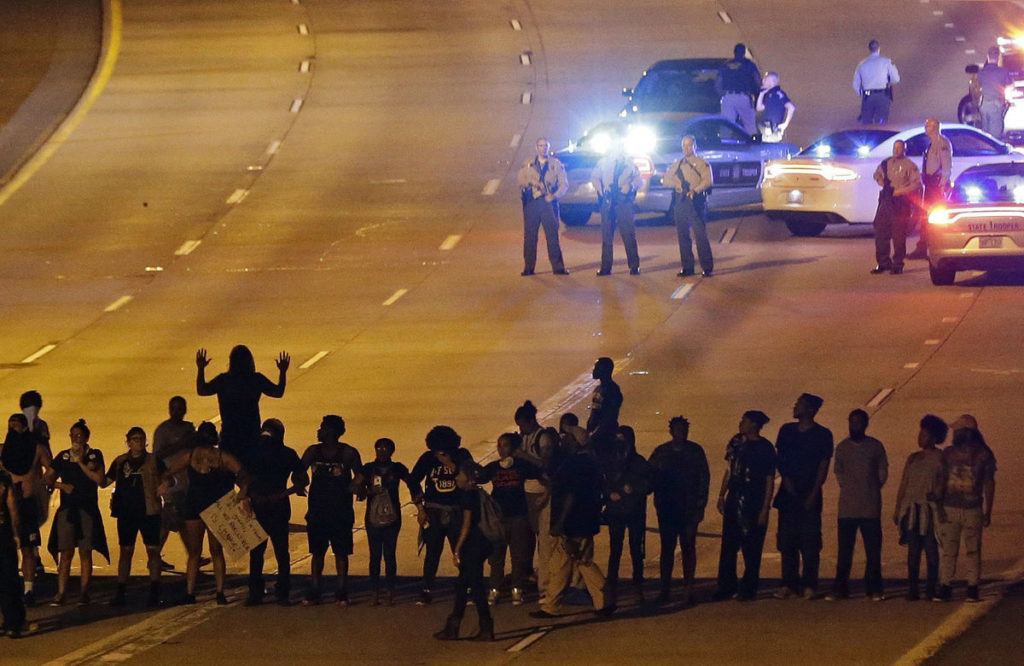
Emotionally wrenching politics, foreign conflicts and shootings at home took a toll on Americans in 2016, but they are entering 2017 on an optimistic note, according to a new poll that found that a majority believes things are going to get better for the country next year. A look at the key findings of the Associated Press-Times Square Alliance poll: ___ SO HOW WAS 2016? Americans weren’t thrilled with the year. Only 18 percent said things for the country got better, 33 percent said things got worse, and 47 percent said it was unchanged from 2015. On a personal level, they were optimistic about 2017. Fifty-five percent said they believe things will be better for them in the coming year than in the year that just concluded. That’s a 12-point improvement from last year’s poll. Americans interviewed about the poll’s results expressed some of that optimism. “Next year will be better than this year, because people will have more jobs and they’ll have more money to spend,” said Bourema Tamboura, a Harlem resident behind the wheel of a New York car service. “I’m hoping 2017 will be better,” added Elizabeth Flynn, 62, an elementary schoolteacher from Peabody, Massachusetts. “You’ve got to be optimistic, and I’m going to try.” Democrats are more likely than Republicans to say 2016 was worse for the country than 2015. And Republicans are especially likely to feel that 2017 will be even better for them personally. University of Miami professor Benjamin Alsup said he needed only three words to explain why 2016 felt worse for him: “Trump, Trump, Trump!” Robert Greenstone, a New York commercial real estate broker, said the political discourse leading up to Republican Donald Trump‘s election as president played havoc with people’s emotions. “The amount of disinformation made people suspect of everything and everyone, even their neighbors,” he said. ____ U.S. ELECTION LEADS TOP NEWS EVENTS The U.S. elections top Americans’ list of 10 top news events in 2016. Three-quarters called the presidential election and Trump’s victory very or extremely important. Sixty-three percent ranked mass shootings and bombings in Orlando, Florida, and in Belgium, Turkey, Pakistan and France as personally important news stories of the year. Fifty-one percent said they found news stories about the deaths of people at the hands of police officers, or news about ambush attacks on police in three states, to be among the year’s most important news events. Fourth on the list are 43 percent who described the spread of the Zika virus as important. The three events described by the largest percentages of Americans as not too important included the death of Muhammad Ali (50 percent), approval of recreational marijuana use in four states (43 percent), and the death of Fidel Castro (40 percent). ____ TOP MOMENTS IN POP CULTURE AND SPORTS A majority of Americans, including 7 in 10 Midwesterners, called November’s World Series win for the Chicago Cubs to end their 108-year drought memorable. Of nine other pop-culture items tested, two were called memorable by about half of Americans: the death of Prince, David Bowie and Leonard Cohen; and the Olympic victories of the U.S. women’s gymnastics team. The two least-notable events for Americans, of the 10 possible choices in the poll, were the Angelina Jolie–Brad Pitt divorce filing and the “Pokemon Go” app game phenomenon, each described by most as forgettable. ____ RINGING IN THE NEW YEAR About half of Americans plan to celebrate the New Year at home. About 2 in 10 plan to go out to a friend or family member’s home, and 1 in 10 to a bar or restaurant. About a quarter don’t plan to celebrate at all. About 6 in 10 plan to watch the Times Square ball drop, nearly all of whom will watch on TV. ___ The AP-Times Square Alliance Poll of 1,007 adults was conducted online Dec. 9-11, using a sample drawn from GfK’s probability-based KnowledgePanel, which is designed to be representative of the U.S. population. The margin of sampling error for all respondents is plus or minus 3 percentage points. The poll is a cooperative effort between AP and the organizers of the Times Square New Year’s Eve Celebration, the Times Square Alliance and Countdown Entertainment. The Alliance is a nonprofit group that seeks to promote Times Square, and Countdown Entertainment represents the owners of One Times Square and the New Year’s Eve Ball Drop. Republished with permission of the Associated Press.
Conservative presidential candidate Evan McMullin fails to make Alabama ballot
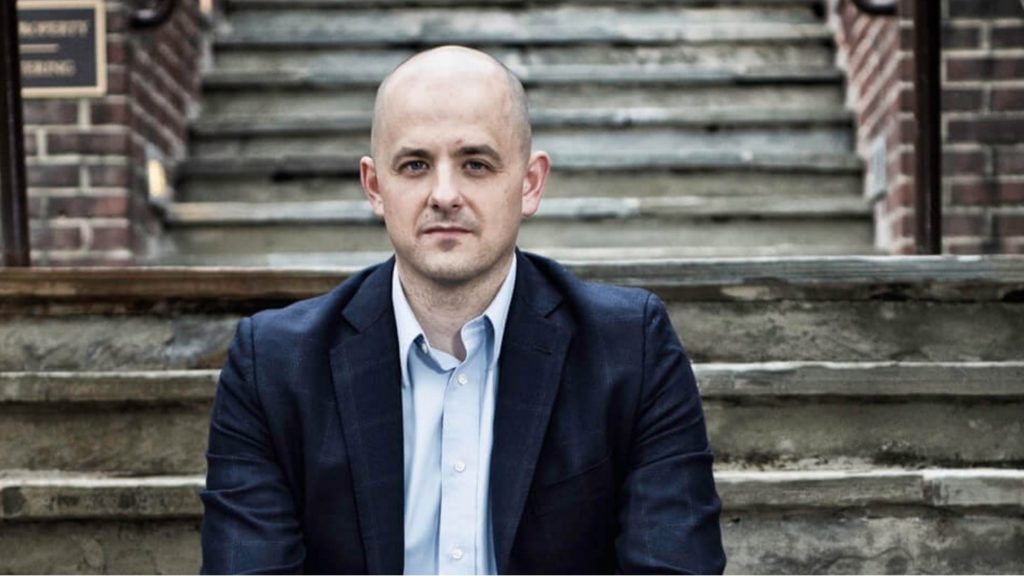
Evan McMullin will not be on the ballot in Alabama. POLITICO reports the newly announced conservative independent presidential candidate failed to submit required signatures for a spot on Alabama’s general election ballot The deadline for independent candidate filing, writes Caroline Kelly, was 5 p.m. Thursday, as verified by the Alabama secretary of state’s office. “We haven’t gotten any, none at all,” said Deputy Chief of Staff John Bennett of McMullin signatures. Bennett confirmed the office did receive signatures for Libertarian candidate Gary Johnson, Green Party candidate Jill Stein, and Rocky de la Fuente, running on the Reform Party ticket. Signatures of registered Alabama voters still need verification before the final results are announced, Bennett told POLITICO. Although McMullin will be on both the Colorado and Utah ballots, the former CIA employee failed to make nearly one-third of the 24 states with remaining deadlines. Thursday was also the deadline for Tennessee, which required 250 signatures, but Secretary of State Director of Communications Adam Ghassemi could not confirm to POLITICO that McMullin, who had announced his candidacy last week, had submitted any signatures. Filing deadlines are Friday for Iowa and Louisiana.
Hoover mayor draws two challengers for Aug. 23 municipal election

Hoover mayor Gary Ivey has drawn two challengers in the Birmingham suburb’s Aug. 23 municipal elections. Former Hoover City Fire Marshal Frank Brocato and Hoover City Schools Foundation President Steve McClinton will appear on the ballot, in what has become a highly contested race. Here is a quick review of each candidate and their proposed plans for the city, in alphabetical order: Frank Brocato Brocato, 63, served 42 years in the city’s fire department before retiring in 2015. With his background in public safety, Brocato has said he will make police and fire one of the top priorities for his administration, should he be elected. “My commitment to public safety will never be compromised,” Brocato told The Hoover Sun. “I think our city was built on providing a great public safety program.” Another issue for Brocato is increasing school funding. “Our school system is running a deficit every year and having to draw from their reserves,” said Brocato. “My fear is that if the school system begins to suffer, I believe it has just a domino effect,” causing property values and businesses to suffer. “I don’t think this city wants to see that happen.” Where to read more: http://frankbrocatoformayor.com https://www.facebook.com/frankbrocatoformayor Gary Ivey (I) Ivey, the owner of Hoover’s Crest Cadillac and the former city council president, has been mayor since his appointment to serve out the remainder of former mayor Tony Petelos‘s term in 2011. He was re-elected without a challenger in 2012. Ivey is seen as the establishment candidate in the race, and in a year where a plurality of Alabamians voted for anti-establishment presidential candidate Donald Trump, many incumbents are rightly taking extra precautions. Ivey began the campaign with more than $140,000 on hand, and is spending the money with alacrity. In the last several years he has bristled at increasing funding to the Hoover public schools, which has remained at around $2 million annually since a precipitous drop from around $8 million in 2008 — likely the main issue that brought his challengers. Where to read more: http://mayorivey.com https://www.facebook.com/MayorGaryIvey Steve McClinton On temporary leave from his volunteer position as president of the Hoover City Schools Foundation, McClinton, 47, a financial planner and father to three children in Hoover City Schools, has made no qualms about framing his entire campaign around the issue of school funding, which he believes Ivey must own. “The the schools go, so goes our city,” he proclaims in a video recently posted on his Facebook page. A late entry into the race, McClinton has a lot of ground to make up against the other two men, who have been campaigning since this spring, but he isn’t concerned. “Families, companies, and industries move to Hoover because they know it is an excellent place to raise a family. Once our schools start declining, so will our city, and I don’t believe the current administration is doing nearly enough to support Hoover City Schools.” Where to read more: www.OneHoover.com www.facebook.com/McClinton4Mayor Where to see them all speak The three mayoral candidates will meet for two forums before election day. The first event will be held Aug. 9 at 7 p.m. at Shades Crest Baptist Church, while the second is on Tuesday, Aug. 16 at 6 p.m.at the Wynfrey Hotel in the Riverchase Galleria.
Hillary Clinton’s invoking of 9/11 to defend donations draws ire
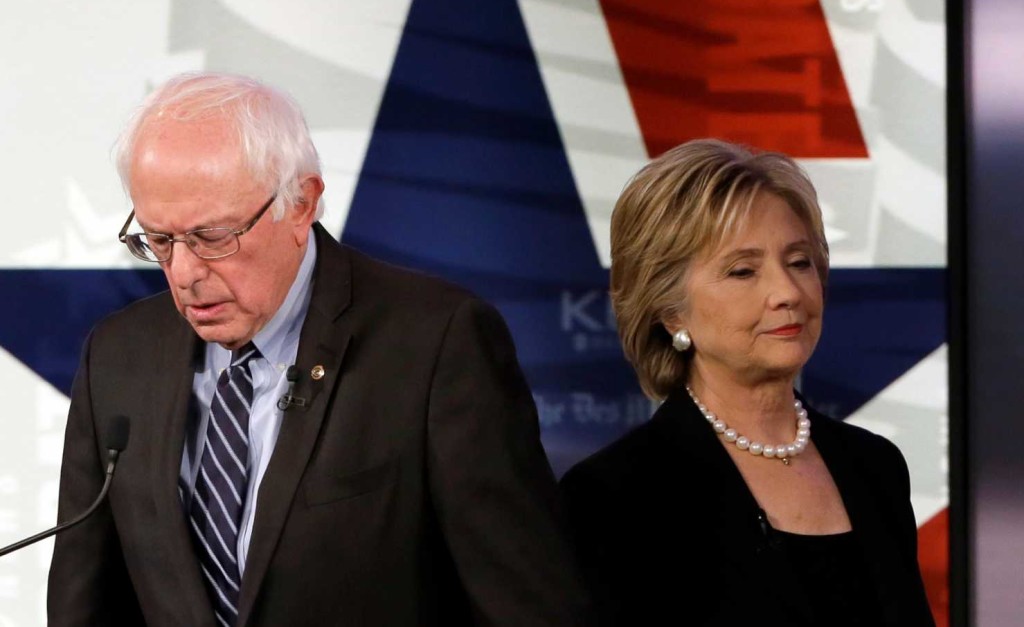
Hillary Rodham Clinton defended her campaign contributions from Wall Street by invoking her work to help the financial sector rebuild after the Sept. 11, 2001, attacks, raising eyebrows among her Democratic challengers and Republicans alike. During Saturday’s second Democratic debate, Clinton was put on the defensive by rival Vermont Sen. Bernie Sanders when he said Wall Street had been the major contributor to her campaigns. “Now maybe they’re dumb and they don’t know what they’re going to get, but I don’t think so,” he said. Clinton responded that she was representing New York in the Senate when downtown Manhattan was attacked and noted that she helped the city’s financial hub rebuild. “That was good for New York and it was good for the economy and it was a way to rebuke the terrorists who had attacked our country,” she said, her voice rising. Her response drew an incredulous response on social media sites like Twitter, and the debate’s moderators asked Clinton to respond to one Twitter user, who took issue with her mention of 9/11 to justify the contributions. “Well, I’m sorry that whoever tweeted that had that impression because I worked closely with New Yorkers after 9/11 for my entire first term to rebuild,” Clinton said. “I had a lot of folks give me donations from all kinds of backgrounds, say, ‘I don’t agree with you on everything. But I like what you do. I like how you stand up. I’m going to support you.’ And I think that is absolutely appropriate.” The exchange highlighted one of Sanders’ main critiques of Clinton: That she has maintained close ties to Wall Street executives during her political career and would be less forceful in policing the risky behavior of financial firms that Sanders says led to the economic downturn in 2008 and 2009. Both Sanders and ex-Maryland Gov. Martin O’Malley support reinstating the Glass-Steagall law which once separated commercial and investment banking but was repealed in 1999 under her husband, President Bill Clinton. The former secretary of state says repealing Glass-Steagall wouldn’t go far enough to curb risks pushed by a shadow banking system. When Clinton raised Wall Street donations along with 9/11, her Democratic rivals quickly bounced. In the post-debate “spin room,” former O’Malley told reporters, “I’ll let her answer that gaffe. I think it was one of the biggest ones of the night.” Mark Longabaugh, a top Sanders’ adviser, said, “Do I think it’s a legitimate defense? No. I don’t see how you can make those two pieces go together.” He called the exchanges over Wall Street the “pivotal moments of the debate.” Republicans said Clinton had shamefully hid behind the 9/11 attacks to deflect attention from her ties to her wealthiest donors. And they signaled that the response would likely find its way into advertising if Clinton becomes the Democratic nominee. “It’s an intersection between stupid and offensive, and I think that’s going to be a big problem as the campaign heads into the general election,” said Sean Spicer, the Republican National Committee’s chief strategist. Clinton campaign chairman John Podesta told reporters the Clinton’s “integrity was impugned and what she was saying was that she was proud to represent the state of New York, to help rebuild lower Manhattan.” “When people attack her and call her quote-unquote the ‘Senator from Wall Street,’ they ought to remember that she was instrumental in trying to rebuild an important part of the New York economy,” he said. Republished with permission of The Associated Press.
Donald Trump moving in on Jeb Bush, Marco Rubio turf in Florida
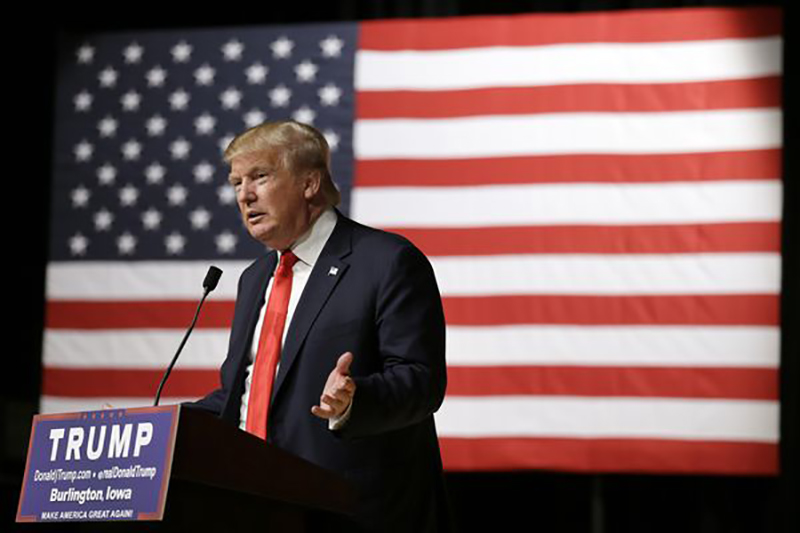
Floridians know two of the Republicans presidential candidates very well: Jeb Bush led the state as a two-term governor and Marco Rubio has been a senator since 2011. Nonetheless, Donald Trump is outpacing both of the state’s resident sons as he continues to dominate early opinion polls. And he is hoping to maintain that advantage with a heavy investment in the state beginning Friday, when he arrives for a two-day swing — his first as a presidential candidate — with rallies planned in Miami on Friday evening and in Jacksonville on Saturday. While Florida doesn’t hold its winner-take-all primary until March 15, Trump recently brought on a Florida state campaign director and plans to open a Sarasota office in early November, Trump campaign manager Corey Lewandowski said. The campaign is also expected to announce the hiring of multiple state co-chairs shortly and expects to bring in additional staffers. Bush’s campaign headquarters are in Miami and he’s opened field offices in Miami and Tampa. Rubio’s campaign headquarters are in Washington; he has field offices in early primary states but none so far in Florida. For Trump, the prize could be a chance to knock out two major rivals on their home turf. A University of North Florida poll of likely Republican primary voters out this week found Trump with the support of 22 percent. Ben Carson, who also lives in the state, had 19 percent. Marco Rubio was third with 15 percent and Jeb Bush fourth with 9 percent. Michael Binder, a University of North Florida pollster and political science professor, said Trump’s “shine is starting to wear off,” noting his approval percentage was the lowest in recent statewide polls. Trump, appearing on Miami radio’s “Paul & Young Ron Show,” said it was “amazing” that he’s leading “your two folks that are running.” Longtime operatives and pollsters in the state say that like many potential voters nationwide, many Republicans in Florida are looking for a change. While Trump has never taken up residence in the state, he has a home in Palm Beach as well as several business ventures, and is well known in philanthropic circles. Jamie Miller, former executive director of the state Republican party, said Florida has been receptive to outsider candidates. In 1992, he noted, Ross Perot won nearly 20 percent of the state’s vote. Gov. Rick Scott is another former businessman who won as a rookie politician in 2010 after spending $70 million of his own cash. State Rep. Neil Combee, who represents a stretch of central Florida, said the buzz for Trump is unmistakable. “People are dissatisfied with the direction the country’s going in,” said Combee, who is supporting Texas Sen. Ted Cruz. “It’s a phenomenon for sure. And it’s one that I don’t think is going away.” Kinsey Craichy, an Orlando business owner, donated $250 to Trump’s campaign even though he knows the GOP front-runner doesn’t need the money. “When you put the same politicians into the same broken system, you get the same result,” said Craichy, a Republican. Craichy said he likes Bush but it’s not time for “business-as-usual” politicians. Rubio is a future star but “right now is not the time for on-the-job training,” Craichy said. Emilio Garcia, 73, and Manuel Alvarez, 76, both Cuban exiles and longtime Republican voters, also dismissed Bush and Rubio because they represent the “old Republican guard.” They prefer a non-politician and especially like Trump. “Trump needs to refine what he says, but he speaks the truth,” said Garcia as he chomped on a cigar outside La Carreta, a popular Cuban restaurant chain in Miami not far from Bush’s campaign headquarters. Alex Conant, Rubio’s campaign spokesman, played down the Florida numbers, saying “polls don’t matter at this stage.” Rubio has been “up and down in the polls, and he’s currently rising,” said Conant. He said the campaign will soon come out with leadership teams in each of the state’s 67 counties and Rubio has made recent campaign stops in the state. For his part, Bush said this week on CNN that Trump is “capturing people’s deep anger and angst about Washington, D.C.” He predicted Trump’s support will wane after voters consider “who has the judgment and the seriousness and the ideas to be president.” Veteran political strategist Roger Stone, a close Trump friend who previously worked for his campaign and remains a supporter, said Floridians “want something entirely new. He’s a breath of fresh air.” Not everyone is impressed. Sipping Cuban coffee on a recent afternoon, Enrique Pineiro, 50, said Trump is “un payaso,” or a clown. “The sum of everything he says is ridiculous,” said Pineiro, who was born and raised in Miami, the son of Cuban immigrants. He prefers Bush because he liked him when he was the state’s governor for eight years. “I know his story,” Pineiro said. Republished with permission of the Associated Press.
Hillary Clinton set to raise $45M in gifts both small — and large
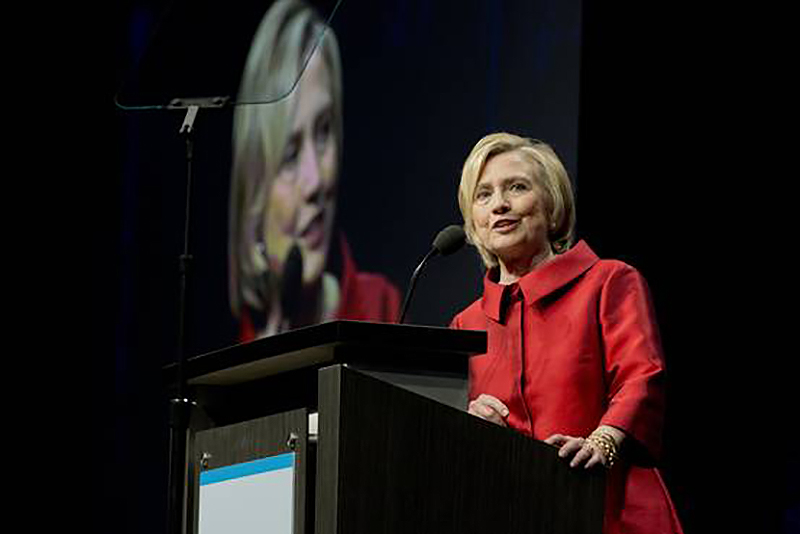
Hillary Rodham Clinton‘s presidential campaign says it is on track to report that it has raised more than $45 million since its launch in mid-April, with the vast majority of those donating giving less than $100. While Clinton’s campaign on Wednesday touted its success with such small-dollar donors, the leading Democrat in the 2016 race also pulled in a large chunk on campaign cash from donors who are giving her the maximum allowed by law. In all, Clinton’s campaign said, their haul is set to best the previous record of primary money raised in a candidate’s first quarter, set by President Barack Obama‘s re-election campaign in 2011 at $41.9 million. “Thank you so much for being part of this campaign. I’m grateful for all you’ve done and excited for what comes next,” Clinton wrote in a handwritten message, a photo of which was posted on Twitter. Clinton’s campaign released a summary of their fundraising the morning after the close of the second quarter. The figures must be formally reported to the Federal Election Commission by July 15, along with a list of each donor who gave at least $200. The campaign did not release the total number of contributions or how many donors gave to Clinton’s campaign, all details it must eventually disclose. But John Podesta, the campaign’s chairman, said on Twitter that 91 percent of all donations to the campaign were $100 or less. “Many people doubted whether we could build an organization powered by so many grassroots supporters,” campaign manager Robby Mook wrote in an email to supporters. “Today’s announcement proves them wrong.” Left unsaid in the campaign’s flurry of celebration of its small-dollar donors was how much it has raised from donors asked to give the legal maximum of $2,700. In recent weeks, Clinton has traveled the country raising money at celebrity-studded events, exclusive gatherings in Hollywood estates and inside Manhattan penthouses. On Wednesday, she was attending an event in a wealthy New York suburb at the home of Maria Cuomo Cole, the daughter of the late New York Gov. Mario Cuomo and sister of the current Gov. Andrew Cuomo. Clinton has raised at least $19.5 million at 61 such fundraisers, an amount that makes up at least 43 percent of her fundraising total. That percentage is sure to be even higher, because The Associated Press used the most conservative ticket prices to her events to calculate the total raised at each. The Clinton campaign’s focus on small-dollar donors isn’t unexpected. Vermont Sen. Bernie Sanders has aggressively courted the party’s most liberal grassroots voters by running largely on a platform of reducing income inequality, and the figures released Wednesday are aimed at showing Clinton also has a strong base of eager supporters and is taking nothing for granted in the primary contest. Aides also promoted Clinton as the most successful primary contest fundraiser in history, besting the nearly $42 million Obama raised in the first three months after beginning his re-election bid in 2011. Obama actually raised more — $46 million — but that number included some checks earmarked for the general election. During her 2008 campaign, Clinton raised $36 million in the first quarter. At that time, she collected checks for both the primary contest and general election — meaning donors could give up to $5,400. That general election money never became available to her. This time, her campaign has set a goal of raising $100 million in primary money by the end of the year and decided to fundraise only for the primary, meaning contributors can give no more than $2,700. If she becomes the Democratic nominee, she can return to those donors and ask for another $2,700. Clinton will also benefit from a network of outside groups that can accept checks of any size from donors. Those organizations are expected to raise several hundred million through the primary and, if she wins the Democratic nomination, the general election. Republished with permission of the Associated Press.


